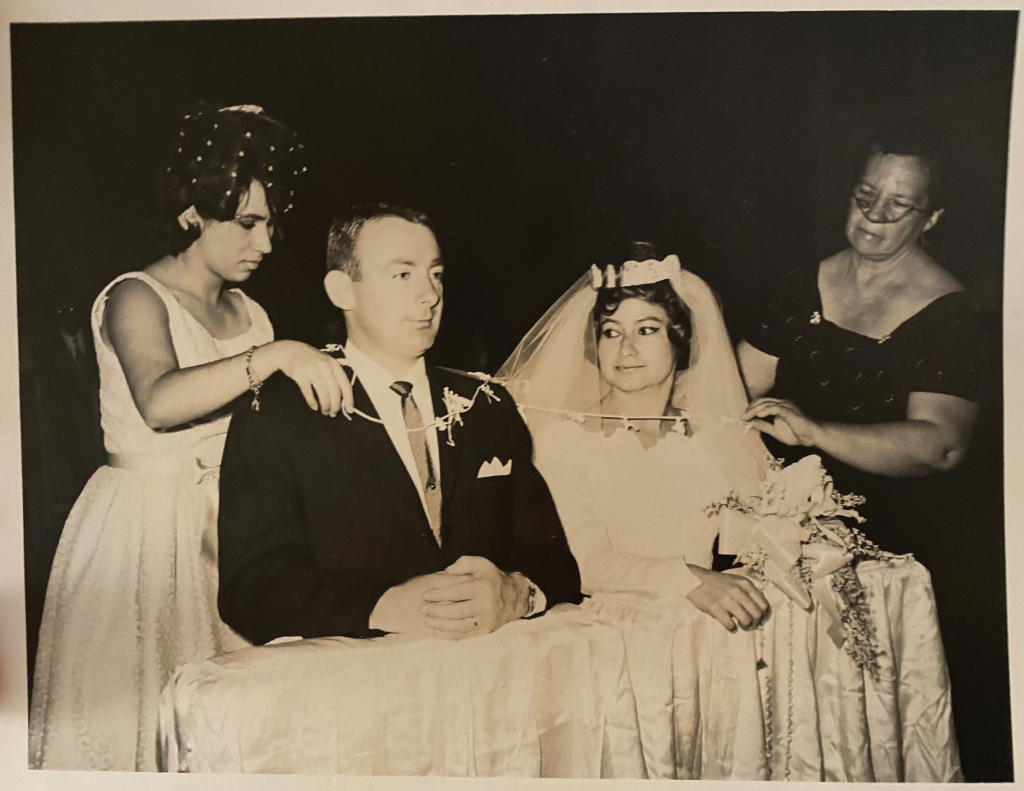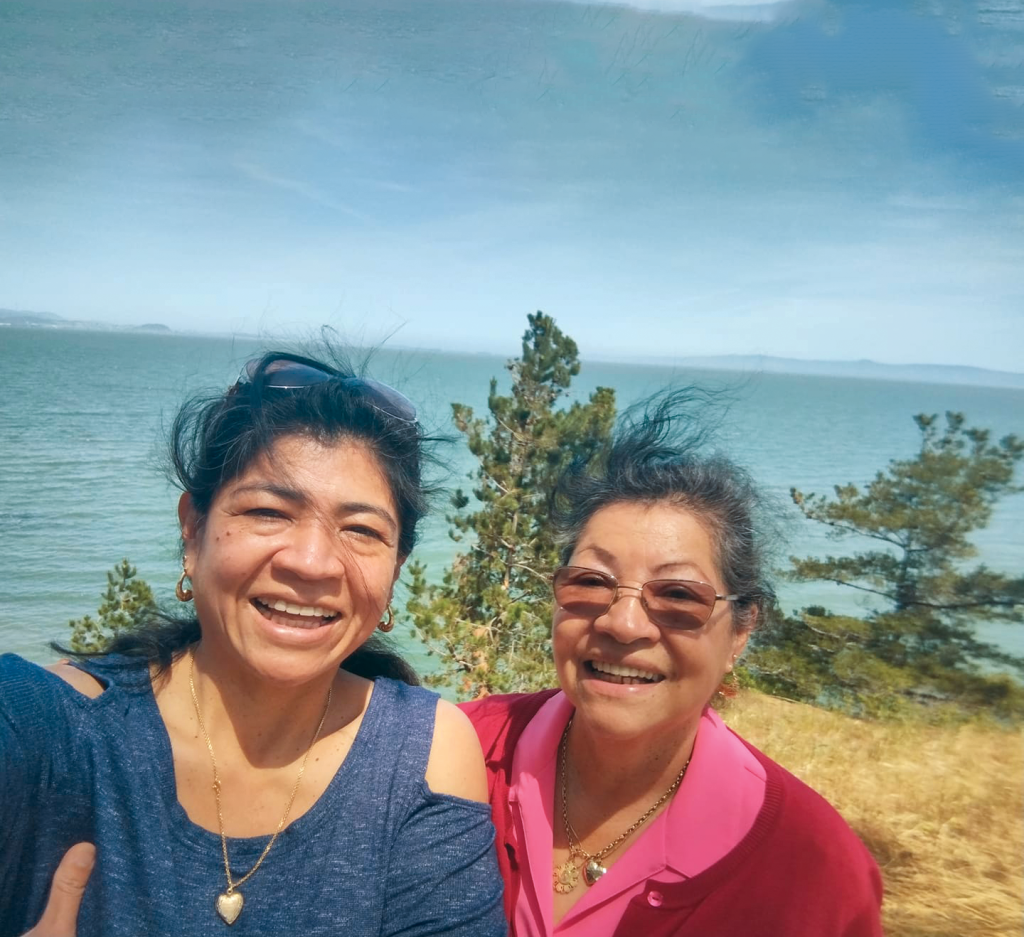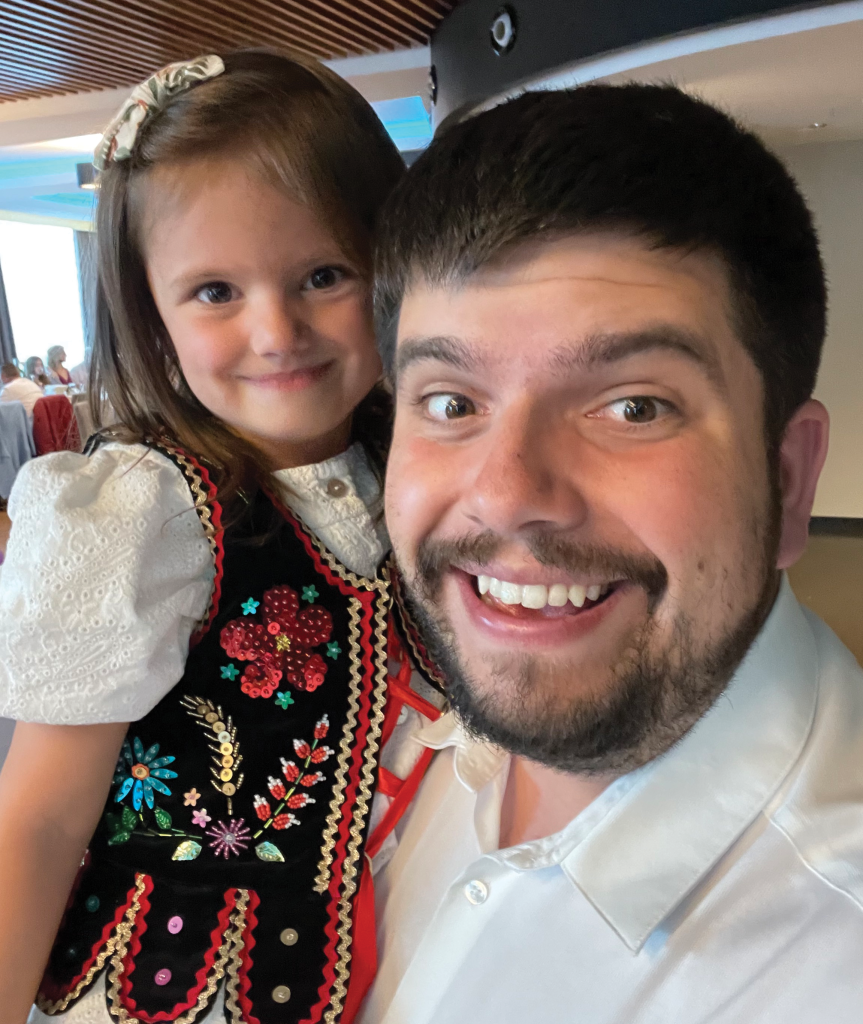American Profiles: Immigrant journeys

Foreign-born local Catholics on how violence, poverty, persecution, opportunity and love brought them to American shores.
By Christina Gray
Catholic immigrants from around the world call the Archdiocese of San Francisco home. Many have raised a generation of Catholics, and their children and grandchildren are raising future generations of Catholics. Others followed or fought to answer a call to religious life or lay service. Here are some of their stories.
VIETNAM
“I wanted to be a Catholic priest. Communists don’t want Catholic priests.”
Father Thuan V. Hoang, San Francisco

Father Thuan Hoang, longtime pastor of Church of the Visitacion in San Francisco, fled South Vietnam in 1987 after communist rule blocked his dream of becoming a Catholic priest.
“I was 19 when they closed the seminary,” he said.
His harrowing journey began as a refugee in an old fishing boat and ended two years later when he came to live with his brother in San Jose. He eventually resumed his interrupted formation and was ordained at St. Patrick Seminary & University in Menlo Park in 1997. Father Thuan has served as a parish priest and canon lawyer for the Archdiocese of San Francisco ever since.
A seventh-generation Catholic, Father Thuan said Christianity was brought to Vietnam by Spanish and French missionaries and colonists. In time, Vietnamese rulers rejected French influence and power and began torturing and murdering Catholics, a practice that continued on and off into the 19th century. One of his ancestors was buried alive with 11 other lay Catholic leaders by order of King Tu Dac.
Most Catholic families in North Vietnam, including Father Thuan’s, fled to South Vietnam when communists took over in 1954. He and three siblings grew up in Saigon (now named Ho Chi Minh City).
After the Vietnam War ended in 1975, communists swept into South Vietnam. Many families rushed to escape. Father Thuan’s oldest brother, the one he would eventually join in America, was the only one in his family that chose to leave in a refugee boat.
The family conformed to the new communist regime as a matter of survival; the food supply was tied to attendance at nightly indoctrination meetings. Privately, Catholic families continued to practice and share their faith, but at great risk.

“Even my parents suggested to me to get married,” he said. “They did not see any hope for the Church or for me as a priest.”
One spring day in 1987, Father Thuan jumped into a moving fishing boat filled with 120 other refugees seeking freedom from the communists. He was 30 years old and had only the clothes on his back.
“If I had known what the boat was like, I would not have gone,” he said. The threats were constant: waves and weather, capture and robbery, disease, drowning and despair. The passengers packed into the boat’s dark and airless hold became violently seasick. “I often thought of hell,” said Father Thuan, who “prayed constantly.”
The boat lost its way, and then its engine. Opportunistic pirates towed it to a Vietnamese refugee camp in Indonesia, then demanded jewelry and valuables from the refugees for their “help.”

Father Thuan said he meditated on scriptural stories of divine deliverance, like when Moses parted the Red Sea so the Israelites could reach the promised land.
“I wanted to be a Catholic priest,” he said. “Communists don’t want Catholic priests.” For this reason, the U.S. granted him political asylum after he joined his brother in San Jose. In 1995, Father Thuan became an American citizen.
Father Thuan has been able to extend his pastoral ministry all the way back to his homeland. In the year 2000, he and two friends founded the Blind Vietnamese Children Foundation, a nonprofit organization that has helped Catholic sisters in Vietnam fund a network of homes, schools and health care centers for visually impaired children.
IRELAND, EL SALVADOR
“The first question he asked me was if I was a Catholic.”
Antonia Folan, San Mateo

She was 25 and from a well-to-do coffee farming family in Atiquizaya, El Salvador. He was 27 and from the village of Inverin on the rugged west coast of Ireland. He had come to America seven years earlier with $100 in his pocket. He spoke no Spanish; she spoke no English. Their common faith proved a bond that eclipsed their differences. They have been married 59 years.
“The first question he asked me was if I was a Catholic,” said Antonia Folan (nee Vega), who stopped in San Francisco to see her aunt on the way back home to El Salvador from a trip to Hawaii for her godchild’s baptism. The year was 1962.
Her aunt was selling her home with the help of a young real estate agent named James Folan. She translated for the smitten pair.
His straightforward question “gave me a good impression,” said Antonia, now 87. She went to the same all-girl Catholic school in El Salvador from grammar school through college.
The second question was whether she smoked. “His third question was whether I could do the cha-cha,” she said, still laughing at the memory.
James and Antonia married in 1963 and raised their children Patricia, Bridget and Luis in El Salvador, Costa Rica and California. They have 10 grandchildren. Everyone speaks at least a little Spanish. No one has learned more than a few words of James’ first language — Gaelic.
“I had always wanted to come to the U.S.,” said James. “I loved America. I loved their clothes. I loved the people. I loved their way of life.”
Trained as an engineer in England, he worked as a carpenter when he arrived in San Francisco in 1956 at the age of 20. His engineering credentials didn’t transfer from old country to new, and he eventually made his living in real estate.
His early years in San Francisco were made difficult at times not by American prejudice, he said, but by Irish prejudice.
“The rest of the relations that lived here were Protestant from Northern Ireland,” he said. “They hated Catholics.”
For Antonia, the English language was a “big wall in front of me” at first. Where she found comfort and common ground was at Mass, celebrated in Latin at the time just before the Second Vatican Council.
She said she never imagined she’d marry an Irishman, but “we understood each other very well.” Their common faith made family decisions easier as James’ career took the family from place to place.

“I always made sure that wherever we moved there would be a good Catholic school my children could go to,” said Antonia. “That was very important to both of us.”
EL SALVADOR
“One thing that I love about America … is if you have the possibility to do something, there are few barriers to do it.”
Carolina Parrales

Carolina Parrales said her immigration story cannot be separated from that of her mother Romelia’s. The young mother of two left El Salvador on her own without papers in 1981 for a single reason: to find a better life for family. She succeeded, though it would be 15 years before Carolina, and later her brother, would join her in San Francisco.
“I think most immigrants come here simply so their families can have a better life,” said Parrales, who works for Faith in Action, a San Francisco nonprofit working for immigrant justice, among other things.
Few would leave their home country, which they love, their own culture, their own language and loved ones otherwise, she believes.
Carolina’s mother came to San Francisco after neighbors in El Salvador promised a relative living there would find her work and housing. They did, but the work was unpaid and she found herself essentially trafficked as domestic help.
“One of the things that sustained my mother on her cross-border journey was her faith,” said Carolina. She was always going to Mass and meeting people, and through that she found a paid job with a family. In time her first husband died, she married again, and bought the house in Bernal Heights she lives in today. The family gathers there each Sunday after Mass at St. Kevin Church.
“Living without my mom led me to be very independent and responsible,” said Carolina, who lived with her father in El Salvador, but had a mother’s responsibility for her younger brother. “He was not just my brother; he was like a son.”
She went to Catholic schools and earned a degree in architecture in 1995. One year later at age 25, she decided to go to San Francisco to reunite with her mother and find a job. Her brother decided to join them a few years later.
The language barrier, a lack of professional contacts or mentors and an “entirely different construction and materials process” made finding work in her field impossible.
“I had the blessing of saying I could go back to El Salvador or could stay here,” she said, a rare privilege for many if not most immigrants.
An amnesty program during President Ronald Reagan’s administration helped her family become quickly accepted as new U.S. citizens.
Carolina said the U.S. for the most part does not have the arbitrary class distinctions and barriers that Central American countries do.
“One thing that I love about America, and our countries are not there yet, is if you have the possibility to do something, there are few barriers to do it,” she said.
The exception is language. She recalled a meeting at a big corporate office where she introduced herself as “Car-o-leena.” A man corrected her, “No, here we pronounce your name as ‘Car-o-lyna.’”
NIGERIA
“It is fair to say that a Catholic priest in Nigeria is an endangered species now.”
Father Raymond Tyohemba

Father Raymond Tyohemba didn’t dream of living in America. As he sees it, God brought him here. He was appointed administrator of St. Finn Barr Parish in San Francisco in 2021.
Born in the Diocese of Makurdi in central Nigeria and ordained in the Via Christi Society, Father Raymond was pastor of its oldest church when Islamic terrorists violently attacked the community for a second time in 2016.
“I remember one day waking up to the sound of automatic rifles,” he said. “I would say that I saw death come for me.”
Stories of Christian persecution by Islamic forces are too numerous to count, underreported by the media and ignored by the global community, said Father Raymond.
Father Raymond came to San Francisco in 2018 when his community sent him to study Catholic educational leadership at the University of San Francisco. He helped celebrate Mass several days a week at St. Finn Barr while completing studies.
“What we are seeing in Nigeria now has never been seen,” he said of the violence against Christians. It’s a battle for resources in the fertile grazing lands of central Nigeria, as much as for religious domination. The intention is to cause terror and displace Christian people in order to take away their land.
On Pentecost Sunday this year, 50 people were gunned down in a Catholic church. In 2018, two Via Christi priests were shot dead in their vestments near the altar as they were celebrating Mass.
“It is fair to say that a Catholic priest in Nigeria is an endangered species now,” said Father Raymond. “Islamic terrorists understand that if they do away with the shepherd, the sheep may not stay.”
In addition to his parish responsibilities, he now serves as a chaplain at UCSF Mission Bay. “Dealing with my own traumas has greatly helped me support others with theirs,” he said.
POLAND
Thomas Kurnicki moved back to the U.S. in 2014 hoping to find the kind of professional success that seemed out of reach to him in Poland at the time.

Thomas, 32, was born in 1990 in Baltimore, where his Polish parents lived after fleeing the Polish People’s Republic, a Soviet satellite and communist state that existed from 1947-1989. The family returned to Poland to live in 1998.
Now an investment analyst for Wells Fargo Bank, Thomas met his Polish wife, Karolina, at Nativity Polish Catholic Church on Franklin and Fell Streets. They and their two daughters, Zoe and Lily, speak Polish at home.
“The entire nation is Catholic,” said Thomas, when asked about what he misses about Poland. “It’s a beautiful thing. The majority of people operate in the same system of values, and those are Catholic values.”
IRELAND
Nora (nee Gilboy) Jones was born in 1933, the fourth child in a devout Irish Catholic family of 13 children in Ballina, County Mayo, Ireland.

“I moved to England to work when I was 21 because there were very few opportunities for work in Ireland at that time,” she said. Oxford University Press hired her immediately.
Her 63-year marriage to Richard Jones, a Welsh co-worker and performer with the Oxford drama society, seemed fated when a lens from his spectacles fell out during a performance, rolling off stage to land at Nora’s feet.
Despite the courtship that soon followed, Nora followed through with plans to move to Los Angeles for two years to work and live with an Irish aunt.
Richard was determined to marry Nora when she returned and was “secretly getting all the obstacles out of the way,” she said. He studied to become Catholic and grew close to his future father-in-law, who became his sponsor. Some Sundays, he even agreed to drive Mr. Gilboy, who had no car, to a neighboring town to see if Nora’s brother, Sean, was attending Mass as he should.
Richard and Nora were married until his death at age 91 in 2020. Early in their marriage they moved to suburban Los Angeles, where they welcomed three daughters. The family settled in Marin County in the 1970s.
The longtime extraordinary minister of Holy Communion and docent at St. Mary’s Cathedral said her faith was “the only thing” that got her through the death of her daughter, Liane, at age 49.
“Other than that, America has been very good to us,” she said.
MEXICO
“Coming here and starting at rock bottom, I was looked down upon, like a failure.”
Inez Benavidez, Novato

Inez Benavidez grew up in the small rural community of Xichu in the state of Guanajuato, Mexico, a place where opportunities for education were for the privileged.
A priest friend helped him enroll at Conciliar Seminary of Our Lady of Guadalupe in Querétaro, Mexico, where he spent his middle school years. The longtime St. Raphael parishioner realized the priesthood wasn’t his calling, but his seminary years stoked a fire for the faith, for education and for a life beyond the farm where his family worked.
He trained to be a horticultural technician and graduated from Universidad de Morelia in Michoacan, Mexico, with a degree in agricultural engineering.
Still, “we had a very hard time with money,” said his wife Laura, 56, whom he married in 1988. She was from nearby San Luis de la Paz.
“Sometimes I didn’t have the money to buy one taco,” admitted Inez, who agreed in 1990 to join his father, then in California, to work for six months. His goal was to earn money to bring back to his family in Mexico, which soon included two daughters, Laura and Noemi.
“I’m now here 32 years,” said Inez, 63, and the owner of Benavidez Landscaping, which serves all of Marin County. His son, Inez Jr., was born in this country and works with him during school breaks.
The language barrier and perceptions about Mexican immigrants made it difficult at first, said Inez. In Mexico, anyone who graduated from university like he did was considered a role model.
“Coming here and starting at rock bottom, I was looked down upon, like a failure,” he said.
His family joined him in California and he thought they might stay for only a few years before returning to Mexico. His daughters picked up the language quickly, which he wanted, and one year led into another.
Today, both daughters have college degrees and have jobs with Marin County.
St. Raphael Parish in San Rafael is a home away from home for Inez and Laura.
Both are leaders of the Guadalupana committee, and Inez is a member of the Spanish choir, singing at both the noon and 7 p.m. Sunday Masses. A huge painting of Our Lady hangs over the family fireplace.
Inez said he never dreamed when he was at a Mexican seminary dedicated to Our Lady of Guadalupe that he would one day be honoring the patroness of the Americas in a different country. “Maybe he didn’t serve her as a priest,” said Inez Jr. “But he is still serving her.”
Christina Gray is the lead writer for Catholic San Francisco.

